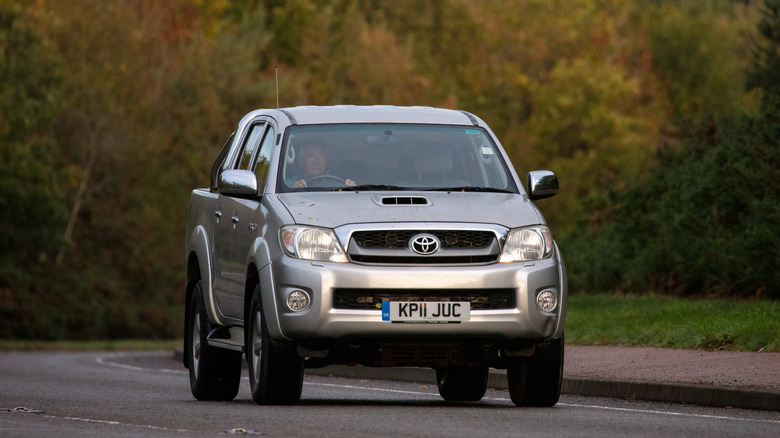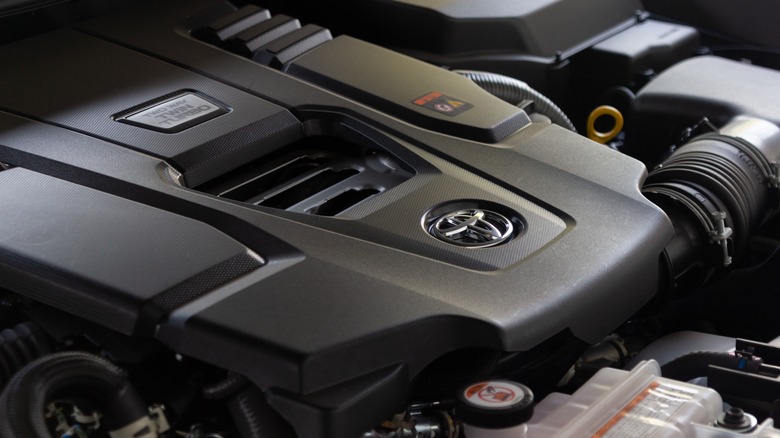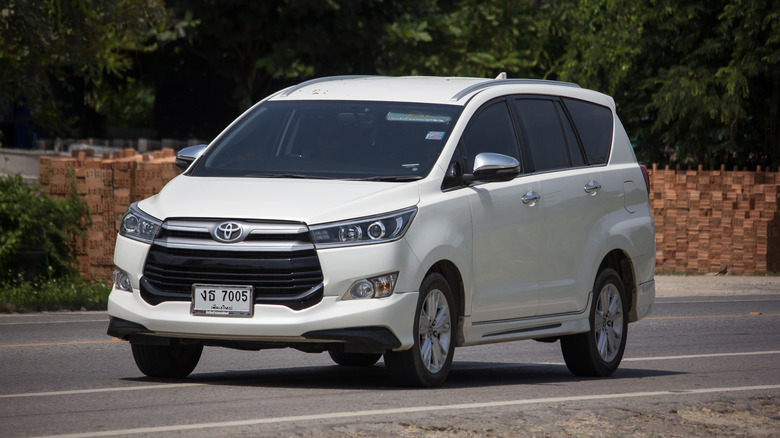
Sue Thatcher/Getty Images
The U.S. has one of the world’s most vibrant and diverse automobile markets. Despite the affinity for certain body styles and vehicle categories, auto enthusiasts, as well as the average consumer, have welcomed vehicles of various types with open arms. The same cannot be said about the preference among U.S. consumers when it comes to fuel.
Advertisement
Most personal cars sold in the U.S., even before the 1970s, were predominantly gasoline-powered ones. It took something as significant as the global oil crisis in the 1970s and the resultant fuel price rise for the U.S. consumer to begin considering diesel vehicles. At the peak of the oil crisis, consumers discovered that diesel vehicles available at the time in the U.S. were more fuel-efficient than their gasoline-powered brethren, leading to a temporary interest spike in diesel vehicles.
By the mid-1970s, for purely economic reasons, Japanese carmaker Toyota — which until then only sold gasoline cars in the U.S. — was forced to launch a diesel-powered pickup truck in the country. Toyota would go on to sell diesel-powered vehicles in the U.S. well into the 80s, only dropping it from its product line in 1986.
Advertisement
To anyone wondering why Toyota does not offer diesel power cars in the U.S., it is because the company contends that it is expensive for them to develop diesel engines that conform to U.S. emission laws. The rising cost of diesel fuel compared to that of gasoline has also been a major factor leading to Toyota and other players deciding against offering vehicles with diesel engines in the U.S.
A brief history Toyota diesel engines in the U.S.

Brylynskyi/Shutterstock
While Toyota’s tryst with diesel engines in the U.S. was a rather short affair, it was an interesting one indeed. The first Toyota pickup truck to be offered with a diesel engine option in the U.S. was the 1979 Toyota Hilux, which was marketed as the Toyota Pickup in America. This pickup truck came with Toyota’s popular «L» engine, introduced by the company in 1977.
Advertisement
This 2.2L diesel engine made a modest 71 hp and generated 105 lb-ft of torque. Outside of the U.S., the original Toyota L engine found its way into several non-U.S vehicles, including the Toyota Crown sedan, and the Hiace van.
In the mid-80s, Toyota would upgrade the original L engine, and introduce the Toyota 2L engine. This engine was also made available to consumers in the U.S. with the updated Toyota Pickup truck models of the mid-80s. The Toyota 2L engine made 82 hp and 123 lb-ft of torque.
Vehicles that used the 2L diesel engine from Toyota include the updated 7th and 8th generation Toyota Crown sedan, the 3rd generation Hiace truck, and updated variants of the Toyota Mark II sedan. The 2L engine, throughout its lifetime, was offered in several different states of tune, with the most powerful variant making 84 hp. There was also a turbocharged variant of the 2L engine that earned the 2L-T moniker.
Advertisement
Moving forward, we saw Toyota update the 2L engine to the 3L in the late 80s. Vehicles that used this engine included the Land Cruiser Prado, the 4th generation Hiace, and the sixth generation Hilux. Toyota, to this day, sells vehicles that feature the 5L engine, which is a direct successor to the 3L engine.
Toyota still makes diesel engines, but there’s a catch

nitinut380/Shutterstock
While their stint in the U.S. wasn’t long, Toyota’s L engines have tasted massive success elsewhere. The company — to this day — offers consumers vehicles powered by successors to the original L engine.
Advertisement
Besides the Toyota L engine and its successors, Toyota also made lesser-known diesel engines like the KX and PZ engine lineup and its successors. Other notable diesel engines from the company included the straight 4 engines from the J series, B Series, W Series, C series, WV series, and GD Series.
While Toyota continues manufacturing and selling diesel powered vehicles in select countries, there is no denying that they have scaled down the rate of manufacturing of diesel engines in favor of more efficient gasoline engines. Toyota has also been a big proponent of hybrid technology and is still betting on hydrogen fuel cell vehicles.
India remains a major market where Toyota still sells vehicles with diesel engines, although even there, the company has decided to phase them out gradually. The India variants of the Toyota Hilux, Toyota Innova Crysta, and the Fortuner are all powered by diesel engines.
Advertisement
Outside of the passenger car industry, Toyota is still a major player in the diesel engine space. In fact, as of 2024, the company sells a variety of diesel engines designed for use in quiet-operating lift trucks, construction equipment, and other industrial applications. Some of the diesel engines sold by Toyota for such applications include the 2.4-liter 1DZ engine, the 3.4-liter 2Z, and 3z series engines, as well as the larger 5.4-liter 14Z and 15Z engines.